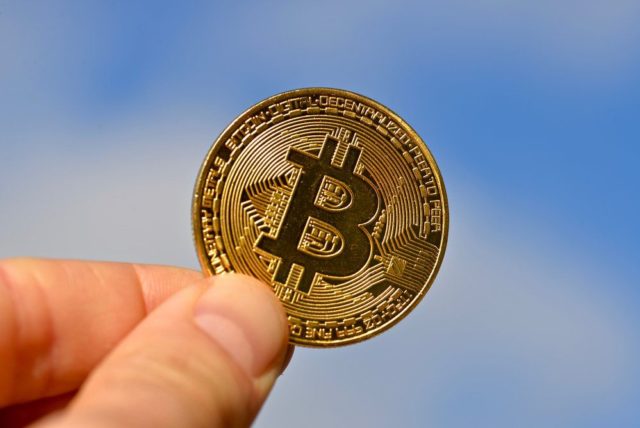Her Eleftherias Kourtali
The weak January is not expected to “determine” the further course of the markets as the big return of the shareholders’ rally is expected in the next period, according to UBS, thanks to three very important factors, as it emphasizes in today’s report.
Describing the course of the markets since the beginning of 2022, UBS points out that monetary policy is now a source of instability, rather than removing it from the markets. The S&P 500 index in January recorded its biggest monthly decline since March 2020 and its worst performance since January 2009. The US index recorded an overall performance of -5.2% for the month, although it recovered by 5% in the last three meetings. The MSCI All Country World Index fell 4.9% in January.
The decline in stocks was mainly driven by the Fed turning to a more aggressive stance, which raised concerns about whether policymakers could lead the economy to a mild downturn by curbing inflation without stifling growth. Markets are now valuing four to five Fed rate hikes this year. The rise in US bond yields (10-year yield +27 basis points in January, 2-year yield +43 basis points) particularly affected growth stocks with the Nasdaq plunging 9% on a monthly basis – while “value” stocks outperformed. The energy sector of the S&P 500 gained 19%, helped by the rally of oil prices to the highest level since 2014. Brent crude prices closed the month above $ 90 / barrel in a context of rising tensions between Russia and the West for Ukraine.
According to the Swiss bank, volatility will persist in the stock markets as investors orient themselves to the transition from a high-growth and high-inflation environment to a more moderate growth and inflation environment in 2022. However, it believes that strong fundamentals will support return of the stock rally.
Specifically, he estimates that Three factors will help make international markets run againovercoming the turmoil caused by monetary policy and not only:
1. Economic growth and profit growth should also offset the negative impact of the Fed’s tightening of policy. At a news conference after the FOMC meeting in January, Fed Chairman Jerome Powell said he saw “enough room” to raise interest rates without hurting the job market.
According to the UBS baseline scenario, the magnitude of interest rate increases priced by the market will not derail economic growth, but will prove sufficient to curb inflation. “If we are right in our forecast, the federal funds rate will close the year at 1-1.25%, another low and well below the Fed’s current policy rate estimate of 2.5%.” points out. This, he explains, will support economic growth, which is already set to improve as the Omicron wave passes, and allow it to stay above trend in the second half of the year.
UBS forecasts earnings per share on the S&P 500 of $ 235 in 2022 (an increase of 12% from 2021) and thus maintains the target for the S&P 500 at 5,100 points at the end of the year. In addition, it expects only a modest increase in bond yields from now on, with the 10-year US yield reaching 2% by June and 2.1% by the end of the year.
2. Corporate profits show resilience. S&P 500 fourth-quarter earnings announcements are now halfway through, and while management results and guidance are not as strong as in recent quarters, about 75% of companies exceed analysts’ estimates of sales and profits. of analysts. In addition, future estimates are well maintained despite the impact of the Omicron wave on demand and business.
3. Finally, the basic scenario of UBS remains that iThere should be a diplomatic solution to the Russia-Ukraine crisis. He sees a significant military escalation as unlikely due to human and economic costs on all sides. The sanctions would have a negative impact on the living standards of Russia’s population, while its integration into global energy markets would mean that significant sanctions would have a negative impact on Western economies. A lasting solution is likely to take time to reach, and tensions are likely along the way, but ultimately the Swiss bank believes that financial interest and common sense will lead all sides to cease immediate military action. Besides, historically, geopolitical shocks have only had a small impact on markets.
Thus, as UBS concludes, despite the weak January, it is positioned for a further upward trend in stocks and maintains its preference for circular stocks with some exposure to defense. It prefers sectors that will benefit from global growth — such as the eurozone stock market, energy stocks, and commodities — and encourages investors to prepare interest-bearing portfolios, for example by adding exposure to banking stocks.
Investors may also consider using recent technology instability to seek exposure in areas such as artificial intelligence, big data, and cybersecurity (ABC). of technology “.
In the foreign exchange market, he expects the US dollar to strengthen further this year as the Fed tightens its policy ahead of other major central banks, such as the European Central Bank or the National Bank of Switzerland.
Source: Capital
I am Sophia william, author of World Stock Market. I have a degree in journalism from the University of Missouri and I have worked as a reporter for several news websites. I have a passion for writing and informing people about the latest news and events happening in the world. I strive to be accurate and unbiased in my reporting, and I hope to provide readers with valuable information that they can use to make informed decisions.







